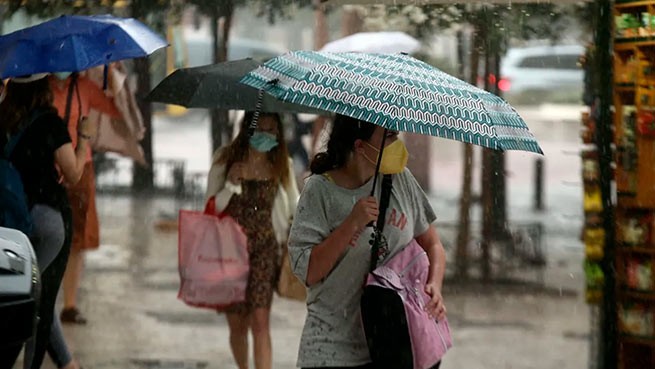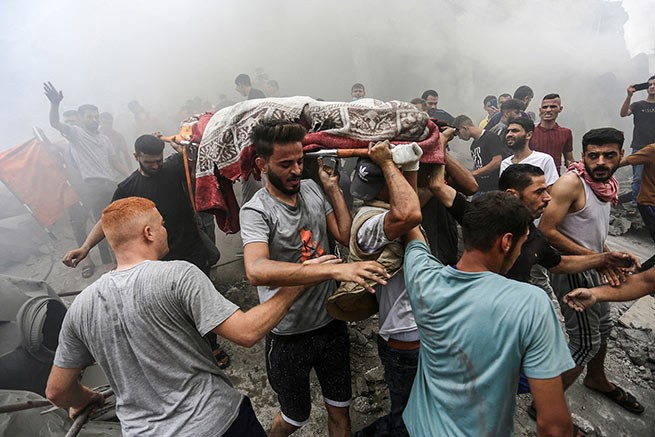When Hamas launched a surprise attack on Israel over the weekend, some Palestinians living in the Gaza Strip had “mixed feelings.” Some celebrated because they viewed the attack as a victory over Israel, while others feared an Israeli response.
The Hamas attack angered the Israeli government from the first hours of the attack, and Prime Minister Benjamin Netanyahu promised “to avenge this black day.” Over the past 24 hours, Israeli aircraft have been carrying out fierce strikes on the Gaza Strip, without particularly discerning where the civilian targets are and where the militant bases are.
Yesterday, Israeli Defense Minister Yoav Galad ordered a “complete siege” of the sector, cutting off water and electricity supplies, while at least 100 thousand troops were deployed near the border of the sector.
“There is no electricity, no food, no fuel. We are fighting against humanoid creatures and acting accordingly,” said an Israeli official. Some 2.3 million Palestinians live in poverty in the Gaza Strip, one of the world’s most densely populated enclaves, where Israel has maintained a tight blockade since 2007.
Since Saturday, Israeli airstrikes in the Gaza Strip have killed at least 830 Palestinians and injured 4,250, according to the Palestinian enclave’s Health Ministry. At the same time, the death toll since the start of hostilities in Israel has risen to 1,000.
For most Gazans, the escalation of the war with Israel is not unprecedented. However, the civilian population has no access to shelters and is forced to lock themselves in their homes, hoping they are not in danger of being struck. Those who dare to go out do so only to buy basic necessities or to look for those missing in the Israeli bombing. The streets are destroyed and littered with rubble, and the air smells of dust and gunpowder.
Salim Hussein, 55, lost his home when his building came under fire. He lived on the second floor and told CNN that he and his family received a warning from Israel minutes before the attack. However, according to Hussein, he does not know why his apartment building became a target for shelling. He moved there with his family just five months ago.
“We left [жилой дом] only in the clothes that we were wearing,” Hussein said, adding that he and his family “have nowhere and nothing to go.”
The Gaza Strip and millions of its residents have been virtually cut off from the rest of the world for almost 17 years. Human Rights Watch previously named the area “the largest open-air prison in the world.”
Since the withdrawal of Israeli troops from the Strip in 2005, Gazans have witnessed repeated Israeli bombings. The Gaza Strip regularly sees fighting between Israel and Palestinian groups, including Hamas and Islamic Jihad. Since 2007, the Gaza Strip has been dominated exclusively by the Islamist militant group Hamas.
Over the weekend, Israel bombed at least 10 residential buildings in Gaza, citing their use by Hamas. As the likelihood of an Israeli ground invasion of Gaza increases, the Israeli army has called on residents to leave the area. However, the civilian population of Gaza is not able to leave the besieged enclave, CNN notes. All exits from the territory are closed. The previously open Rafah crossing in Egypt was closed today.







More Stories
Paris: wild clashes between police and "black" block
Modern Germans are far from the most hardworking in Europe
Georgia: Opposition leaders were brutally beaten by security forces (video)